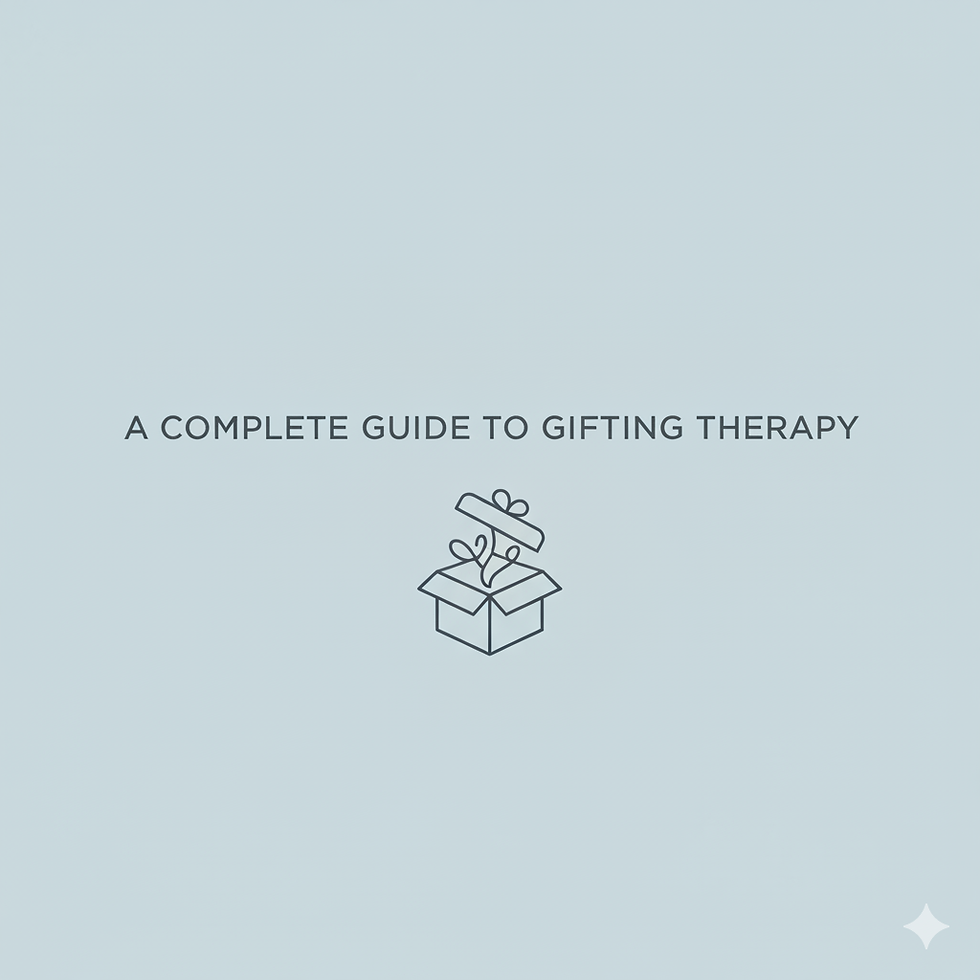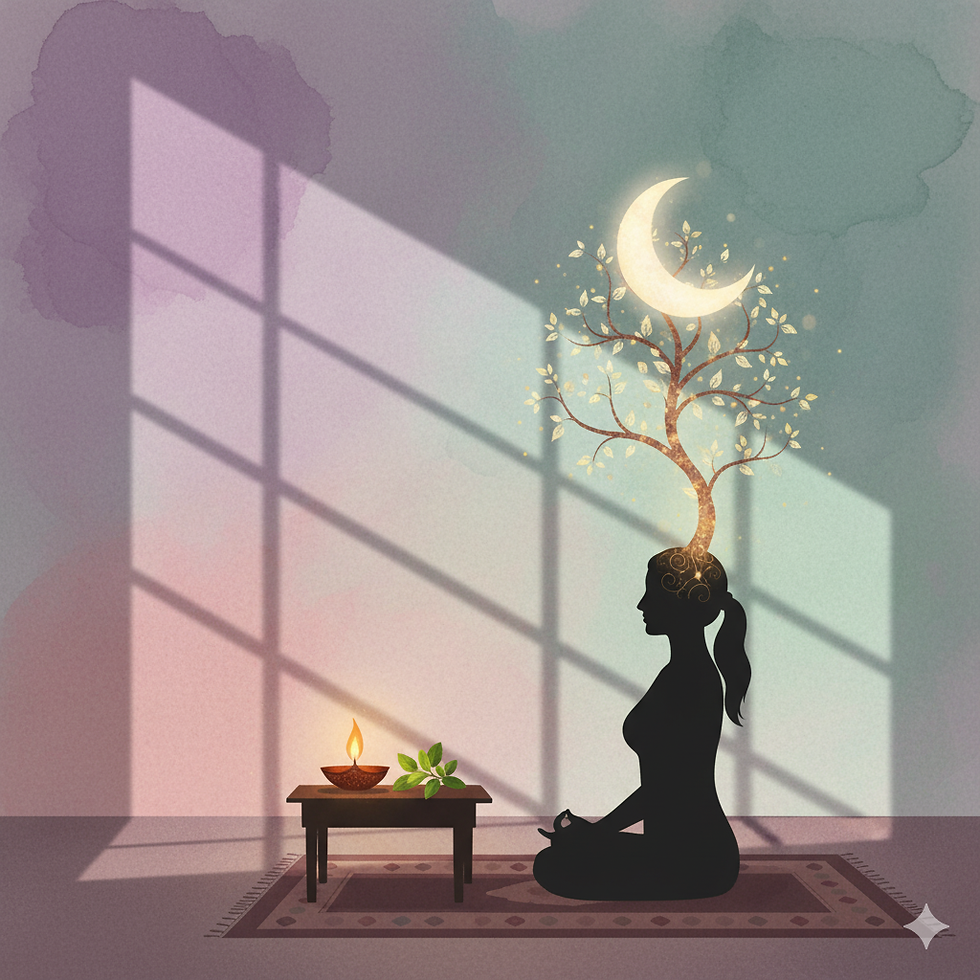Do meds for PTSD actually work?
- Rimjhim Agrawal

- Sep 29, 2025
- 6 min read

Introduction
Post-traumatic stress disorder (PTSD) affects a significant portion of the global population, with the World Health Organization (WHO) estimating that approximately 7% of adults experience PTSD at some point in their lives. In India, while precise figures are challenging to obtain due to underreporting and access barriers, the prevalence is likely substantial, influenced by factors including societal stress, conflict, and natural disasters. Understanding the effectiveness of PTSD trauma medications is crucial for improving treatment outcomes and reducing the burden of this debilitating condition. This article will delve into the efficacy of various medications, considering both the scientific evidence and the realities of accessing care within the Indian healthcare system. We will also examine the cultural nuances within India that impact PTSD treatment and recovery.
Understanding PTSD and Its Treatment Options
PTSD, a severe anxiety disorder, develops after exposure to a traumatic event. The Diagnostic and Statistical Manual of Mental Disorders, Fifth Edition (DSM-5) (American Psychiatric Association, 2013) outlines specific diagnostic criteria. Symptoms often include intrusive memories, nightmares, avoidance behaviors, negative alterations in cognition and mood, and marked alterations in arousal and reactivity. The impact on daily life is significant, affecting relationships, work, and overall well-being.
What are the current treatment options for PTSD?
Treatment for PTSD typically involves a combination of therapies and, in many cases, medication. Psychotherapies like Cognitive Processing Therapy (CPT) and Prolonged Exposure (PE) are widely considered effective. However, medication plays a vital role in managing symptoms, especially when severe.
What to Do
Consult a mental health professional: This is the crucial first step in diagnosing PTSD and determining the most appropriate treatment plan. A psychiatrist can assess your specific needs and determine if medication is right for you.
Research different types of therapy: Explore therapies like CPT and PE, which have strong evidence of effectiveness in treating PTSD. Find a therapist experienced in these modalities.
Create a support system: Build a strong network of family and friends who understand your condition and provide emotional support.
What to Avoid
Self-medicating: Avoid attempting to manage PTSD symptoms with substances or medications not prescribed by a doctor. This can be dangerous and may worsen symptoms.
Ignoring symptoms: Delaying treatment can significantly impact recovery and may lead to the worsening of symptoms over time.
Giving up on treatment: Finding the right treatment plan may take time and involve trial and error. Don't get discouraged if the first option doesn't work.
The Role of Medication in PTSD Treatment
Several classes of medications are used to treat PTSD symptoms, primarily targeting associated conditions like anxiety, depression, and sleep disturbances. Selective serotonin reuptake inhibitors (SSRIs) and serotonin-norepinephrine reuptake inhibitors (SNRIs) are commonly prescribed. These medications help regulate serotonin and norepinephrine levels in the brain, neurotransmitters implicated in mood and anxiety regulation. For example, Sertraline (Zoloft) and Paroxetine (Paxil) are commonly prescribed SSRIs, while Venlafaxine (Effexor) is a common SNRI. The effectiveness of these medications varies depending on the individual. A meta-analysis (Bandelow et al., 2017) showed that SSRIs and SNRIs were more effective than placebo in reducing PTSD symptoms. However, the magnitude of this effect is modest.
What to Do
Discuss medication options with your psychiatrist: They can help you understand the risks and benefits of various medications and choose the one most appropriate for your condition and other health factors.
Be patient and persistent: It may take several weeks or even months to find the right medication and dosage that effectively manages your symptoms.
Monitor side effects and communicate them to your doctor: Many medications have side effects. Early identification and discussion allow adjustments to treatment.
What to Avoid
Stopping medication abruptly: Always follow your doctor's instructions on how to discontinue medication. Abruptly stopping can lead to withdrawal symptoms.
Ignoring side effects: Don't hesitate to report any unexpected or concerning side effects to your doctor. Adjustments to dosage or a change in medication may be necessary.
Expecting a complete cure: Medication is a tool to manage symptoms; it doesn't guarantee a complete cure on its own.
Combining Medication and Therapy for Optimal Outcomes
While medication can significantly alleviate PTSD symptoms, it's crucial to emphasize that it's not a standalone solution. Evidence strongly supports the combination of medication with psychotherapy for optimal results. A meta-analysis conducted by Resick et al. (2002) demonstrated the superior efficacy of combined treatment (medication plus psychotherapy) compared to either treatment alone. In the Indian context, this holistic approach is particularly important, given the cultural emphasis on family support and the integrated nature of mental and physical health.
What to Do
Explore evidence-based therapies: Seek out therapists skilled in therapies like CPT, PE, or trauma-focused cognitive behavioral therapy (CBT).
Integrate medication and therapy: Work collaboratively with your psychiatrist and therapist to develop a comprehensive treatment plan that combines medication and therapy.
Maintain regular appointments: Consistent engagement with both your psychiatrist and therapist is key to sustained progress and symptom management.
What to Avoid
Expecting immediate results: Combining therapy and medication takes time and commitment to show positive results.
Disregarding therapy if medication seems effective: Therapy addresses the root causes of PTSD, while medication primarily manages symptoms.
Neglecting self-care: Prioritize self-care strategies such as regular exercise, healthy eating, and sufficient sleep to enhance treatment effectiveness.
Addressing Cultural Barriers and Accessibility Challenges in India
In India, cultural stigma, limited awareness, and access challenges significantly impact PTSD treatment. Traditional beliefs, societal pressures, and family dynamics can create barriers to seeking professional help. Moreover, the availability of mental health services, especially in rural areas, remains limited. The affordability of treatment can also pose a significant hurdle, especially given the cost of both medication and therapy sessions. Finding culturally sensitive mental health professionals is also critical.
What to Do
Educate your family and friends: Addressing stigma starts at home. Educating loved ones about PTSD can encourage them to offer support.
Utilize online resources: A variety of online resources and helplines are becoming increasingly accessible in India, offering support and connecting individuals with mental health professionals.
Seek affordable treatment options: Explore options such as community mental health centers or government-supported programs.
What to Avoid
Ignoring symptoms due to stigma: Delaying treatment can prolong suffering and worsen symptoms.
Self-treating with unqualified practitioners: This could lead to unsafe and ineffective practices.
Feeling ashamed or embarrassed: PTSD is a treatable condition. Seeking help is a sign of strength.
Frequently Asked Questions
How long does it take for PTSD medication to work?
It varies, but typically takes several weeks to see a noticeable improvement in symptoms. (Bandelow et al., 2017). It's crucial to remain consistent with medication and therapy to allow time for it to be effective.
Are there any side effects associated with PTSD medication?
Yes, potential side effects include nausea, weight changes, sleep disturbances, and sexual dysfunction. These can vary in intensity and frequency depending on the medication. It's essential to communicate any side effects with your doctor.
What if medication doesn't work for me?
If one medication isn't effective, your doctor might adjust the dosage, try a different medication, or recommend a different combination of therapies and medication.
Are there natural remedies for PTSD?
While lifestyle changes like exercise, mindfulness, and yoga can be beneficial complements to professional treatment, they should not replace medication or therapy prescribed by a healthcare professional for PTSD. The evidence for their effectiveness as standalone treatments is mixed.
How can I access affordable PTSD treatment in India?
Explore options such as community mental health centers, government-supported programs, and affordable online therapy platforms. Also, inquire about financial assistance or sliding-scale fees from clinics.
What is the role of family in PTSD recovery?
Family support plays a vital role. Understanding and empathy from family members is crucial for recovery. Family therapy may also prove beneficial.
Conclusion
The effectiveness of PTSD trauma medications varies greatly depending on individual factors, the chosen medication, and integration with a holistic therapeutic approach. While medications like SSRIs and SNRIs can significantly reduce symptoms in many individuals, they are not a standalone solution. Combining medication with evidence-based psychotherapy, like CPT or PE, offers a more comprehensive and effective treatment strategy. In the Indian context, addressing cultural barriers, improving access to care, and prioritizing affordability are equally crucial aspects of successful PTSD management. Remember, seeking professional help is a testament to strength and is a critical step towards recovery.
Next Step for Your Well-being
Taking the first step towards healing is brave. Understanding your options and knowing where to seek support is crucial. We've addressed the complexities of PTSD medication and highlighted the importance of a holistic approach. Remember, recovery is a journey, and access to quality care should not be a barrier.
Book your first consultation for just ₹99 at Your Emotional Well-Being.
References
American Psychiatric Association. (2013). Diagnostic and statistical manual of mental disorders (5th ed.). American Psychiatric Publishing.
Bandelow, B., Michaelis, S., & Wedekind, J. (2017). Efficacy of pharmacotherapy for posttraumatic stress disorder (PTSD): Systematic review and meta-analysis. Journal of Psychiatric Research, 95, 108-118.
Resick, P. A., Monson, C. M., & Chard, K. M. (2002). A comparison of cognitive processing therapy with prolonged exposure and a waitlist control condition for the treatment of chronic PTSD. Behavior Therapy, 33(3), 557-574.
World Health Organization. (2022). Mental health: strengthening our response. Geneva: World Health Organization.



Comments